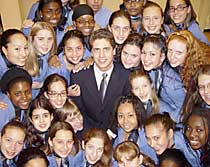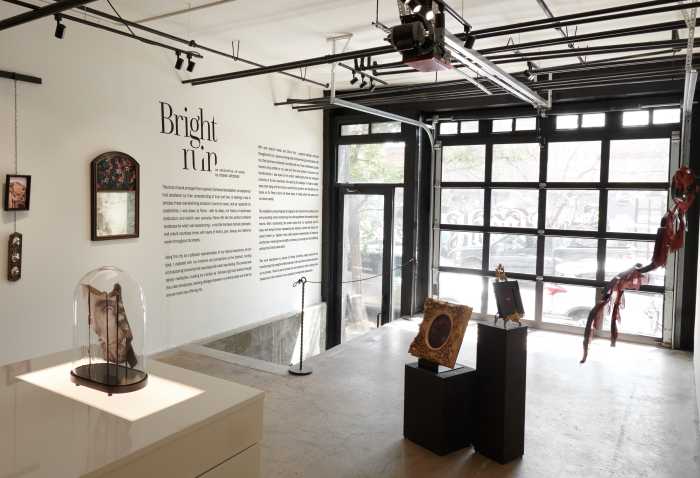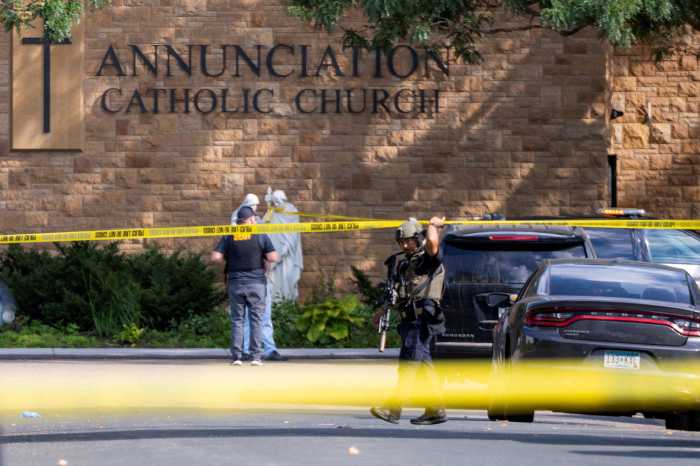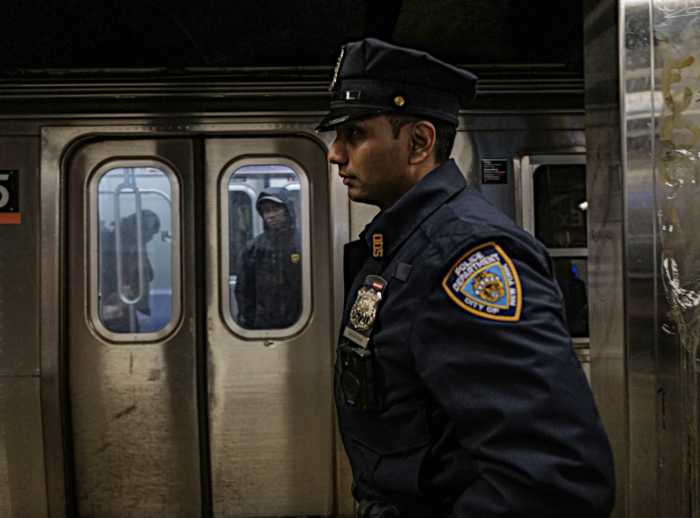The Holocaust, always a difficult subject,
becomes even more so when discussing artists who were affected
by its horrors.
When confronted with such human tragedy it almost seems petty
to lament the loss of art and other ephemeral things. But the
fact remains that silencing the voice of an artist is also a
profound loss for humanity, and that’s why the Brooklyn Philharmonic’s
chamber concert, "The Last Expression: Music from the Camps,"
provides such an invaluable service.
Many composers – like Arnold Schoenberg, Erich Korngold and Ernst
Krenek – were able to escape Nazi Germany and its annexed territories
for shelter, freedom and a career in other parts of Europe or
America. Others were not so lucky, perishing in concentration
camps.
The second of the Philharmonic’s chamber music events at the
Brooklyn Museum of Art, to be performed in the Iris and Gerald
Cantor Auditorium on March 9, "The Last Expression"
is noteworthy not only because it puts faces on several composers
who perished at the hands of the Nazis, but also because it contains
some very good music.
Many talented composers were silenced during World War II. The
Terezin concentration camp in Czechoslovakia housed no fewer
than four accomplished Czech composers: Hans Krasa, Pavel Haas,
Erwin Schulhoff and Viktor Ullmann. All of them died in 1944
after they moved from Terezin to death camps like Auschwitz.
For "The Last Expression," Ted Wiprud, the orchestra’s
director of education and community engagement – who programs
this series with Evans Mirageas, artistic advisor to the Philharmonic
– insists that these works are important musically, as well as
historically.
"The history of music might have been somewhat different
if they had survived," Wiprud says.
The structure of the concert takes note of their creativity and
their legacy. "We wanted to have the first half of the concert
to be music by those composers who were actually there in the
camps," he says, "and not just the music that they
wrote while in the camps, but also what they did beforehand.
The second half of the program is centered on music that responded
to the tragedy."
The program begins with Schulhoff’s First String Quartet, which
was written in 1924. "That quartet is such a confident combination
of sophisticated musicality and earthy folk music," Wiprud
says. "It’s just a wonderful way to open the concert, because
it gives you a sense of what the future held for these composers."
Following Schulhoff’s work, Krasa’s "Dance" and "Passacaglia
and Fugue" – both of which he composed while interned in
the camp – will be performed.
"Krasa wrote two pieces for string quartet while at Terezin,
and neither of them seems to be a direct reflection of his life
in the camp," says Wiprud.
"Although the ’Dance’ ends with a dissonant chord that may
refer to their horrible existence, the ’Passacaglia and Fugue’
are absolute music, music which does not refer directly to these
events."
Interestingly, film footage from the camp, documenting a Red
Cross inspection when the Nazis made everyone put on a happy
face for their visitors, includes a glimpse of several performing
musicians. A silent excerpt from that film will be shown at the
concert.
Krasa’s lovely children’s opera "Brundibar" ("Bumblebee"
in Czech), composed in 1938, was also performed by kids in Terezin
for the benefit of those Red Cross inspectors. Excerpts from
that opera – whose eponymous villain has been likened to Hitler
himself – will be sung by the Young People’s Chorus of New York.
For the concert’s second half, a memorial work by one of the
biggest names of the contemporary music avant-garde will be played:
Steve Reich’s 1988 magnum opus written for string quartet and
tape, "Different Trains."
Wiprud describes the Reich work: "A string quartet plays
along with a tape, and what’s on the tape are two layers of the
Kronos Quartet playing, so in essence, you have three string
quartets playing at once. In addition, there is another taped
layer of voices and train whistles.
"The first movement (’America – Before the War’) is an innocent
image of trains based on Reich’s childhood spent seeing each
of his estranged parents by train," he says. "But the
other two movements (’Europe: During the War’ and ’After the
War’) are about the cattle cars in World War II. It’s a very
evocative and moving piece from a New York Jewish composer that
brings the issue right home to us."
"The Last Expression" coincides with the theatrical
release of Roman Polanski’s Holocaust tale "The Pianist,"
which is up for seven Oscars. There was also a recent production
in Manhattan of "Brundibar," and scheduled for later
in March are concerts of Ullmann’s music by the Orchestra of
St. Luke’s and other ensembles.
Our necessary attempts at healing through art continue.
The Brooklyn Philharmonic Chamber Series presents "The
Last Expression: Music from the Camps" at 3 pm on Sunday,
March 9 at the Iris and Gerald Cantor Auditorium in the Brooklyn
Museum of Art, 200 Eastern Parkway. On May 18 at 3 pm, the Brooklyn
Philharmonic will present "Pulp Music." Tickets are
$15, $10 students and seniors. For more information, call (718)
622-5853 or visit www.brooklynphilharmonic.org.

























